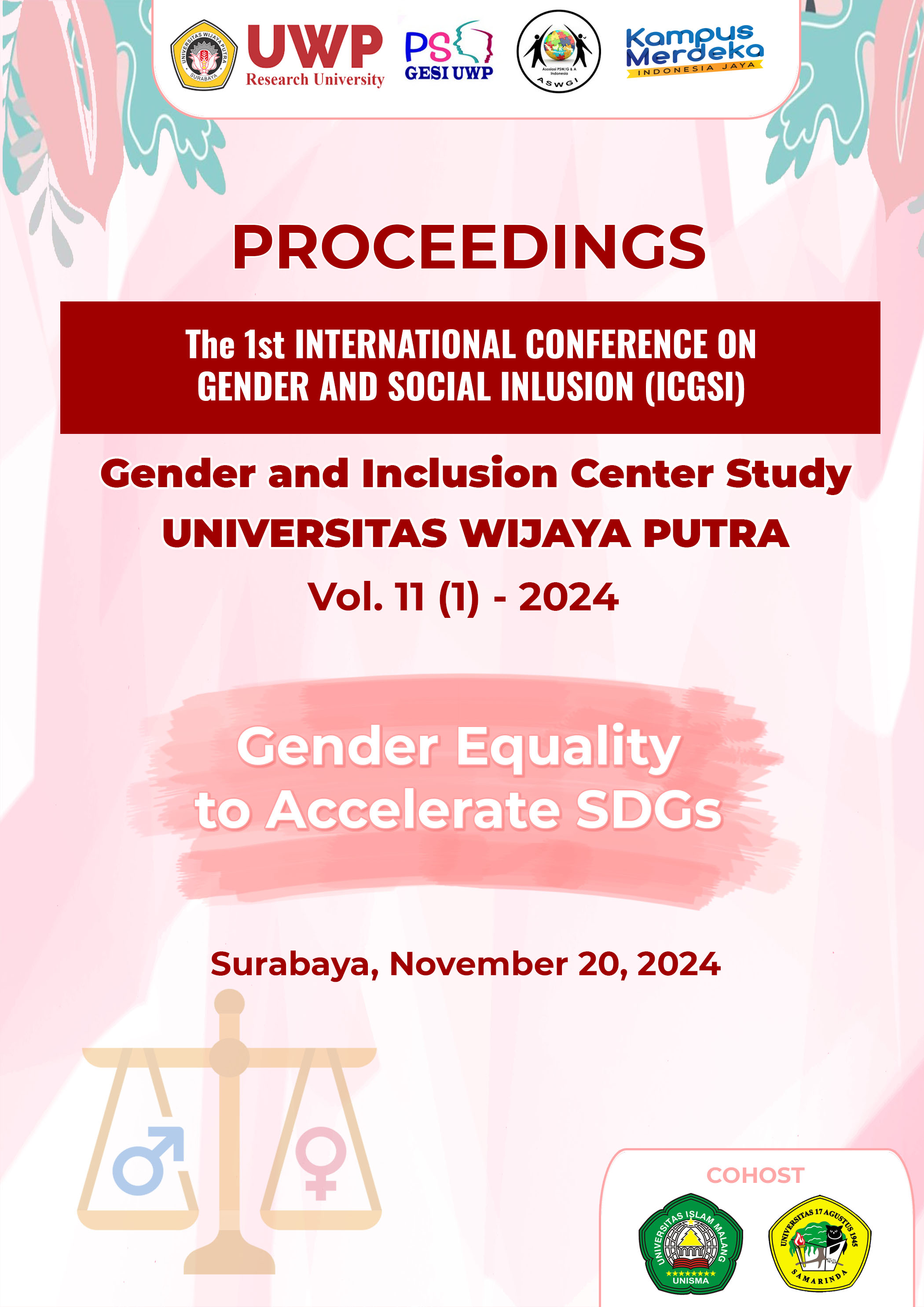EVALUATION ANALYSIS OF THE FAMILY HOPE PROGRAM IN POVERTY ALLEVIATION IN SIDOARJO REGENCY
DOI:
https://doi.org/10.38156/gesi.v9i1.351Kata Kunci:
family hope program, povertyAbstrak
Poverty is still often found in developing countries, one of which is Indonesia. Poverty alleviation programs in Indonesia are still intensively carried out, various kinds of empowerment programs are implemented, this is to improve the community's economy towards a better direction. The Family Hope Program (PKH) is a program that provides conditional social assistance to families and/or a person who is poor and vulnerable, designated as a PKH beneficiary family. This study aims to evaluate the Family Hope Program in alleviating poverty in Sidoarjo, analyze the factors that influence the Family Hope program, analyze the actions taken by the government, and analyze the impact of the Family Hope program. This research uses qualitative research methods. The location of this research is in the Sidoarjo Regency Social Service. While the technique used in determining informants is a purposive sampling technique. While the data collection techniques used include interviews and written documentation. Furthermore, the data analysis technique used by researchers is data collection, data reduction, data display, and data verification.
The results obtained from this study indicate that the Family Hope Program (PKH) is already running, to find out about the implementation of the Family Hope Program can be seen through the effectiveness stage, the adequacy stage, and the equity stage. Factors that influence this program include implementation and procedures. Implementation is very important to actively involve the community in the planning and implementation of the program. Procedures involve providing the necessary documents and verifying them. The success of the program is influenced by socialization, which requires cooperation and collaboration between the government and Beneficiary Families (KPM). The outcomes of the program can be either positive or negative. Positive results indicate that the program has the potential to improve the welfare of the beneficiary families, while negative results indicate that the program is ineffective. Monitoring and evaluation are required to ensure the success of the program.
Referensi
Berliana, Isni. 2020. "Analysis of the Effectiveness and Efficiency of the Use of the E-Desk Application System at the Directorate General of P2P of the Ministry of Health of the Republic of Indonesia in 2018-2021." Chapter II Literature Review 2.1 12 (2004): 6–25.
Febrianti, Rr. Diana &, and Diyah Utami. 2021. "Utilization of PKH Assistance for Assisted Communities in Sidorejo Village, Sidoarjo Regency." Paper Knowledge . Toward a Media History of Documents 7 (2): 107–15.
Fidianing Sopah, Winda Kusumawati and Kalvin Edo Wahyudi. 2020. "Implementation of Poverty Alleviation Policy through MSME Empowerment in Sidoarjo Regency No Title" 2 (6): 26–40.
Kusumawati, Eny. 2019. "Analysis of the Implementation of the Family Hope Program (PKH) for Equitable Distribution and Improvement of the Welfare of the Poor in an Islamic Economic Perspective." Sustainability (Switzerland) 11 (1): 124. http://scioteca.caf.com/bitstream/handle/123456789/1091/RED2017-Eng-8ene.pdf?sequence=12&isAllowed=y%0Ahttp://dx.doi.org/10.1016/j.regsciurbeco.2008.06.005%0Ahttps://www.researchgate.net/publication/305320484_Sistem_Pembetungan_Terpusat_Strategi_Melestari.
Maizella, Yelfi. 2021. "Implementation of the Family Hope Program (PKH) in Poverty Alleviation in Padang Mutung Village, Kampar District" 10: 82.
Nadilla, Hanifah Fatwa, Nunung Nurwati, and Meilanny Budiarti Santoso. 2022. "The Role of Family Hope Program Companions (PKH) in Combating Stunting Children in Beneficiary Families." Focus : Journal of Social Work 5 (1): 17. https://doi.org/10.24198/focus.v5i1.39561.
Najidah, Nurul, and Hesti Lestari. 2019. "The Effectiveness of the Family Hope Program (PKH) in Rowosari Village, Tembalang District, Semarang City." Journal of Public Policy and Management Review 8 (2): 69–87.
Parwati, Linda. 2018. "Public Perception of the Implementation of the Family Hope Program," no. 1: 430–39.
PRATIWI, DESI. 2020. "The Effectiveness of the Family Hope Program (PKH) in Poverty Alleviation Reviewed from Islamic Economics." Malaysian Palm Oil Council (MPOC) 21 (1): 1–9. http://journal.um-surabaya.ac.id/index.php/JKM/article/view/2203%0Ahttp://mpoc.org.my/malaysian-palm-oil-industry/.
Rosalina, Shella Yulia. 2018. "Implementation of the Family Hope Program (PKH) in Efforts to Reduce Poverty in Ngaliyan District, Semarang City." ثبثبثب ث ققثق (ثق ثقثقثق): 112. http://search.ebscohost.com/login.aspx?direct=true&db=sph&AN=119374333&site=ehost-live&scope=site%0Ahttps://doi.org/10.1016/j.neuron.2018.07.032%0Ahttp://dx.doi.org/10.1016/j.tics.2017.03.010%0Ahttps://doi.org/10.1016/j.neuron.2018.08.006.
Saragi, Siswati, Maria Ulfa Batoebara, and Nur Ambia Arma. 2021. "Analysis of the Implementation of the Family Hope Program (PKH) in Rantang City Village, Hamparan Perak District." Public: Journal of Human Resource Management, Administration and Public Service 8 (1): 1–10. https://doi.org/10.37606/publik.v8i1.150.
Sasmito, Cahyo, and Ertien Rining Nawangsari. 2019. "Implementation of the Family Hope Program in an Effort to Alleviate Poverty in Batu City." JPSI (Journal of Public Sector Innovations) 3 (2): 68. https://doi.org/10.26740/jpsi.v3n2.p68-74.
Susanto, Herman. 2016. "Evaluation of the Family Hope Program (PKH) in Kebayoran Lama District, South Jakarta." Thesis.


